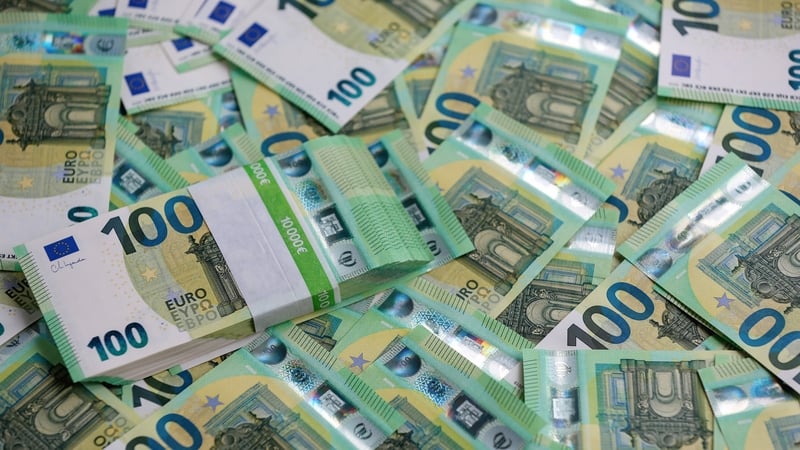More than 15 years after the banking collapse rocked the economy and public trust, the Government has lifted the long-standing cap on bankers’ pay.
Introduced following the 2008 financial crash, the €500,000 salary limit was meant to rein in excess and signal a new era of responsibility.
Its removal marks a significant turning point – one that’s being welcomed by industry leaders but met with unease by others who remember the high cost of past mistakes.
Why was the cap removed?
This week AIB returned to full private ownership after the State sold off its remaining stake.
As a result, Minister for Finance Pascal Donohoe said he would remove the pay cap at both AIB and PTSB.
While the State still holds a 57% stake in PTSB, he lifted the cap for both to ensure a level playing field.
The cap was removed for Bank of Ireland back in 2022, shortly after it returned to private ownership.
So, is scrapping the bankers’ pay cap about to unleash sky-high salaries once more?
Who were the top earners pre-crash?
Before the crash brought the banking system to its knees, a handful of top executives were earning eye-watering salaries that symbolised the excesses of the Celtic Tiger era.
These included executives at Bank of Ireland, Anglo Irish Bank, Irish Nationwide, AIB and Irish Life & Permanent – all of which were bailed out by the State.
The total cost of Ireland’s bank bailout was over €64 billion.
Brian Goggin

Brian Goggin leads the pack of top paid bankers here pre-crash.
Mr Goggin became group CEO of Bank of Ireland in June 2004, until his retirement in 2009.
He first joined the bank in 1969, holding a number of senior management positions within the group in the US, Britain and Ireland.
His pay peaked in 2006, when he was earning just under €4 million.
Since Bank of Ireland returned to full private ownership in 2022, the pay of current CEO Myles O’Grady has been increasing.
In 2023 he earned just over €1 million, rising to €1.37 million in 2024.
With Bank of Ireland reportedly planning to change its share awards scheme to retain senior executives, Mr O’Grady is in line to receive a total annual package worth around €2 million in 2026.
David Drumm

David Drumm of Anglo Irish Bank is next on the list.
He became CEO of the bank in 2005 and was paid €3 million during his first year in the position.
He stepped down as CEO in December 2008, a day after the resignation of the bank’s chairman, Seán FitzPatrick.
The resignations followed a controversy at the bank which involved fraud, mismanagement and insider dealings, culminating in the bank’s nationalisation and criminal prosecutions.
In 2018, Mr Drumm went to prison for his role in the €7.2 billion banking fraud.
He was released in 2021 after serving almost three years in prison in Ireland.
Michael Fingleton

Michael Fingleton served as the head of Irish Nationwide for nearly four decades, before it collapsed in the banking crash.
He first joined the then-named Irish Industrial Building Society in 1971, and held top leadership roles – both Managing Director and Chief Executive – right up until his departure in 2009.
In 2006, the then CEO took home a pay packet of more than €2 million.
Two years later in 2008, the year INBS posted record losses of €280 million, Mr Fingleton paid himself a €1 million bonus – despite the bank being on the verge of collapse.
He had promised to repay the bonus in 2009 amid political pressure but never returned the money.
A long-running inquiry into Mr Fingleton wound up in 2019 due to his ill health.
He was just one of several Irish Nationwide executives under investigation by the Central Bank, following a €5.5 billion bailout for the society.
Eugene Sheehy

Eugene Sheehy joined AIB in 1971 and spent almost 20 years in retail banking.
He was appointed general manager of retail operations in 1999, managing director of AIB Republic of Ireland in 2001, and chief executive officer of AIB’s USA division in 2002.
He was appointed group chief executive from July 2005, a position he held until his retirement in 2009.
Mr Sheehy made over €2.1 million in 2007, with similar levels in surrounding years.
He retired in 2009, just months after the bailout, and initially qualified for an annual pension of over €500,000.
After public and political outrage, he agreed to reduce his pension to €250,000 per year.
Just this week, AIB returned to full private ownership, which means the pay of its current CEO Colin Hunt will no longer be tied to the €500,000 pay cap.
Mr Hunt currently earns €500,000 in base salary, plus an additional €100,000 in pension contribution -bringing his total pay to around €600,000 per year
Denis Casey

Denis Casey joined the PTSB group during its time under Irish Life & Permanent ownership.
In 2005 he was appointed chief executive of Permanent TSB before taking on the role of ILP group chief executive in May 2007.
In the year immediately before the crash, he was being paid around €1.1 million.
In 2009, as the crisis unfolded, his total compensation including severance and pension-related payments reached about €4.57 million.
He resigned as ILP chief executive in February 2009 over its financial support for Anglo.
So, with the pay cap now lifted, a new era of executive pay is dawning in Irish banking – one that could see top bankers earning sums not seen in over a decade.
As the sector adjusts, all eyes will be on how banks balance reward with responsibility.




